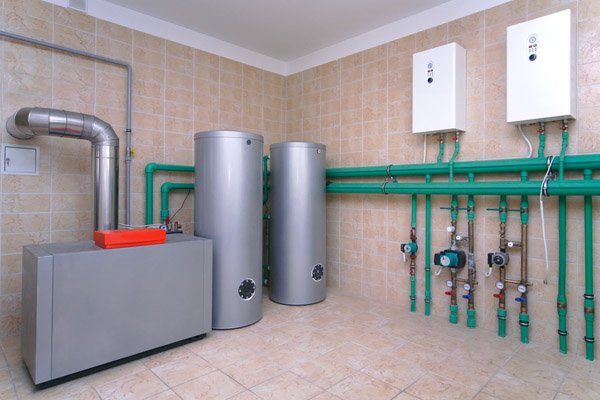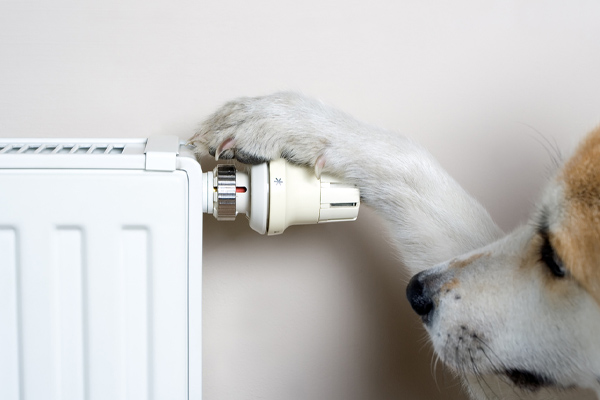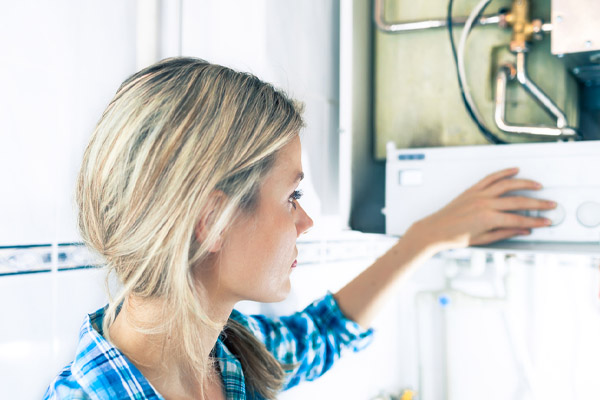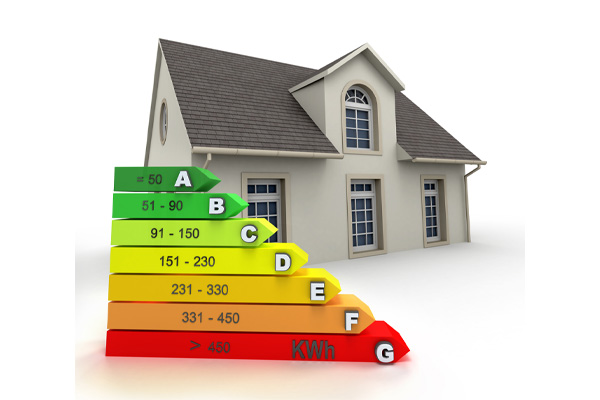Contents

Finding the best boiler temperature can be difficult. The fluctuating outdoor temperatures and your hot water needs mean that the boiler settings in your home may differ from the next household. Factors that help you find out the best temperature for your boiler include knowing the central heating boiler type you have in your home and the usual temperature settings. Read on to learn the recommendations for efficient home heating.
Common Types of Central Heating Boilers

Understanding the type of central heating boiler you use and how it works before making boiler temperature adjustments is beneficial.
Combi Boilers
Combination boilers, shortened to combi boilers, are the popular central heating choice because you get heating and hot water in a single unit. The main water supply delivers the cold water to the combi boiler. The boiler’s fuel combustion generates heat. This heat is then transferred by the heat exchanger from the combustion chamber to the water. Combi boilers that use gas or oil to heat the water can heat your home quickly.
These boilers are more compact compared to other boilers as they do not occupy space for a separate water tank. Therefore, it is ideal if you have a smaller property. Although one unit provides both heating and hot water, a combi boiler cannot direct hot water to your central heating and taps at the same time. For example, the central heating is on, and you turn on a faucet. This will result in the boiler temporarily redirecting the hot water to the faucet until you turn it off.
Regular Boilers
Regular boilers are also called conventional or heat-only boilers. These boilers have three parts: the boiler, a separate hot water cylinder, and a separate cold water tank. The cylinder to store cold water is usually placed in the attic or a loft space so gravity can help fill the boiler. The boiler heats water and directs it into the central heater’s radiators. It also fills the hot water tank, so you have hot water when you need it.
A conventional boiler is an ideal boiler if you own a larger property. It is your best bet if your house has several bathrooms or your main water supply has low pressure. Regular boilers take up more space, but they can supply heating and hot water simultaneously, thanks to their separate water tanks.
System Boilers
System boilers, like regular ones, feed hot water to radiators and have hot water on demand from the hot water tank. These boilers only have two parts: the boiler and hot water tank. The main water supply of a home will direct water into the boiler, so there is no need to have a separate cold water cylinder.
These boilers are perfect for large properties that have high hot water demands. They require less space and offer more flexible installation options compared to regular boilers, as many of their components are internal. System boilers still need space for the hot water tank. If there is low pressure from the main water supply, the flow rate around the house will reflect this.
Central Heating Boiler Temperature Settings
There isn’t one temperature you should input in your central boiler. The temperature you set will differ depending on a few factors like personal preference and the weather. The ideal situation is that you should only adjust the temperature of your boiler within a specific temperature range, so your boiler does not overheat.
Recommended Temperature Settings

The central heating water and hot water tank will have different temperature settings. You need to adjust the boiler’s temperature settings per the weather outside for heating water. For example, the summer season calls for low boiler temperatures to ensure better efficiency and comfort. On the other hand, winter means higher boiler temperatures are more suitable. Standard low-temperature settings are from 120 to 150° Fahrenheit, and high-temperature ranges are from 180 to 200° Fahrenheit.
Keep the temperature at a maximum of 200° Fahrenheit if you need warm temperatures. The boiler will overheat once the temperature increases over 212°, which can cause leaks. It may even burst.
The hot water cylinder’s temperature settings tend to remain within the same temperature range throughout the year. The hot water cylinder’s temperature is ideally between 140 to 150° Fahrenheit. Avoid getting your boiler water temperature from getting too low for health reasons. Legionella is a bacteria that can multiply in fresh water that has a temperature between 77 to 112° Fahrenheit. This bacteria can lead to contracting a kind of pneumonia known as Legionnaires’ disease. The Centers for Disease Control and Prevention states that the heating cylinder’s water temperature should be kept above 124° at the minimum.
Tips for Boiler Energy Efficiency

Use the temperature controls for efficient home heating. It also helps you achieve optimum energy efficiency. Using programmable thermostats and installing thermostats in each room let you achieve precise temperature control in every room in your home. For instance, you can set the temperature in your bedroom to be cooler than in other rooms to enjoy a healthy and comfortable night of sleep.
Smart temperature controls will make automatic adjustments to your home temperature. They also let you control your home’s temperature through your smartphone or tablet. These features let you lower your home’s heating consumption while your home is unoccupied. Setting your boiler to rise and fall 4 to 5° during various times of the day significantly helps with efficient home heating. A house that has a cooler temperature while you are away also enables you to be more cost-effective.
Call Wilcox Energy For Reliable Heating Oil Tank Installations

For top-notch service and competitive prices on your heating oil, oil tank installations, and HVAC services, contact Wilcox Energy as soon as possible.
We offer a broad range of financing options and delivery plans, which allow you to customize your oil deliveries to meet your specific needs. In addition, we perform heating system repairs and maintenance for the purpose of enhancing the overall efficiency and functionality of all your home heating equipment. Contact Wilcox Energy for all of your residential heating needs.
For more information about our heating oil deliveries, oil tank installations, or HVAC services, be sure to contact Wilcox Energy. You can click here to contact us or call us at (860) 399-6218. Call now!
